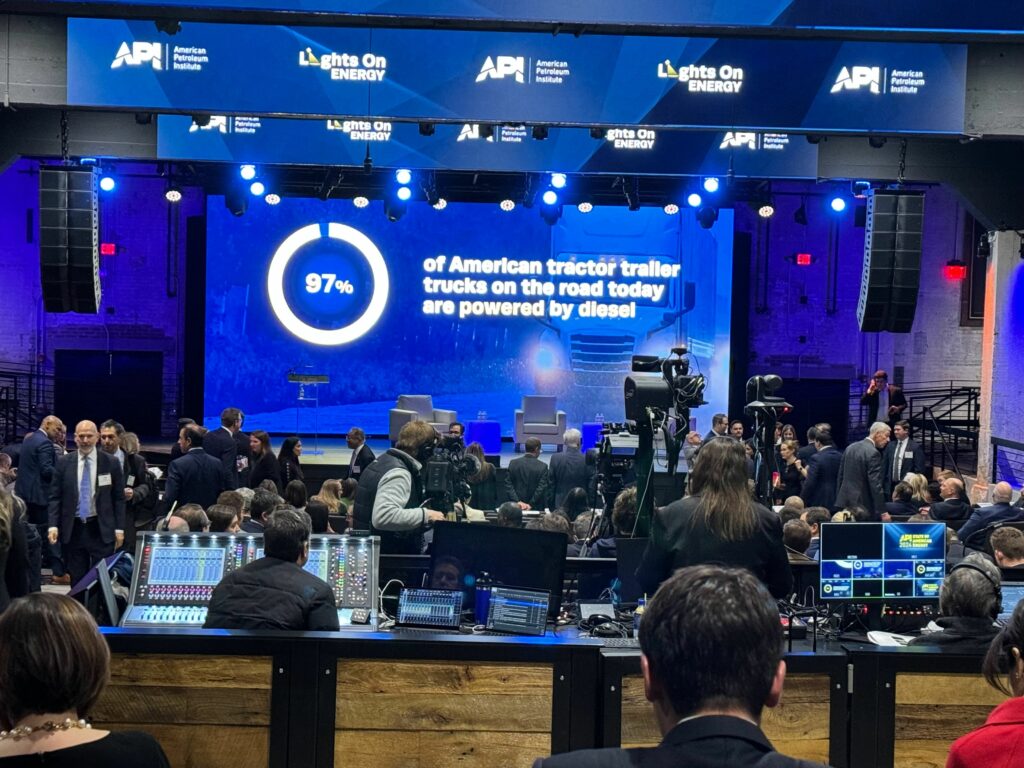At the American Petroleum Institute’s (API) 2024 State of American Energy gathering in Washington, D.C., Wednesday, senators from both sides of the aisle agreed the nation’s process of permitting energy projects needs reform. And the moment may have arrived for a deal to be done.
Sens. Bill Cassidy (R-La.) and John Hickenlooper (D-Colo.), both members of the Senate Energy and Natural Resources Committee, said a “grand bargain” could be reached if everyone comes to the table.
“I do think there’s a point of common ground between left and right,” said Cassidy during a question and answer session at the API event. “[Democrats] want permitting reform for power lines, and we want it for pipelines, but it serves the same purpose. We will get to where we need to be. More energy secure in a way that doesn’t take two and a half years to get a permit for something that could be permitted in six months.”

Hickenlooper said, “Permitting is a challenge to everybody,” regardless of the project, and he urged a “fact-based’ approach to permitting. For example, he rejected an outright ban on fossil fuel development on federal land, a policy supported by some progressives in his party.
“Where to develop on federal lands, that’s a complicated issue,” Hickenlooper said. “You’ve got to go and get the facts and really address where does it make sense to explore, and where does it not make sense?”
The most famous example is the Keystone XL pipeline. First proposed in 2008 and extensively reviewed before being permitted and approved, President Barack Obama rejected its permit in 2015. Two years later, President Donald Trump allowed the project to continue. But President Joe Biden revoked the permit once more on January 20, 2021, his first day in office. The project’s owner, TC Energy, abandoned the pipeline after 13 years of effort.
A 2018 Government Accountability Office study suggested there needed to be “better coordination” between agencies and applicants for “more efficient permitting.”
For green energy projects, complaints frequently center around power lines needed to move electricity from the windmills and solar panels — often in relatively rural areas — to consumers. Some issues involve running transmission lines through private property or dealing with multiple state and federal bureaucracies.
The Brookings Institution suggested certain reforms to the National Environmental Policy Act, the law that created the EPA, would help accelerate permitting actions.
While protests and lawsuits targeting fossil fuel projects like natural gas pipelines are common, green energy projects have been blocked as well. Nonprofits, including the National Audubon Society and the Sierra Club, have gone to court in hopes of canceling solar and wind projects in the name of either protecting wildlife or advancing social justice.
One proposal Cassidy supports involves judicial review of lawsuits involving energy, manufacturing, and critical infrastructure projects. He’s proposed the Revising and Enhancing Project Authorizations Impacts by Review (REPAIR) Act that puts together a mediation process between developers and federal agencies. Hickenlooper appeared interested in judicial review at the API summit.
The idea of judicial review garnered support from Philip Rossetti with R Street Institute, a free-market-oriented nonprofit. Rossetti told DCJournal the policy ensures that “permitting agencies know exactly what litigation risks they have to address before they issue a decision” while also increasing the quality and speed of environmental reviews.
Energy producers and analysts aren’t as optimistic as the two senators about permitting reform passing Congress anytime soon.
“I can’t see standalone energy legislation happening this year,” said API president and CEO Mike Sommers. “There are a lot of vehicles moving… there’s potential of two different omni appropriations bills. There’s a tax extenders bill that looks like it’s going to be moving. We’re going to be looking to hitch a ride on any of those things.”
“We are certainly at a moment where both sides of the aisle see big benefits to permitting reform, and both parties are putting forward serious legislation,” he said. “The legwork on permitting reform is getting done, but the big potential barrier to permitting reform this year is that the closer we get to the election, the harder it can be to work out a bipartisan compromise if either side thinks they can get a better deal after the election.”
Author: Taylor MillardPublication: Delaware Valley Journal
https://delawarevalleyjournal.com/at-api-gathering-bipartisan-calls-for-energy-permitting-reform/